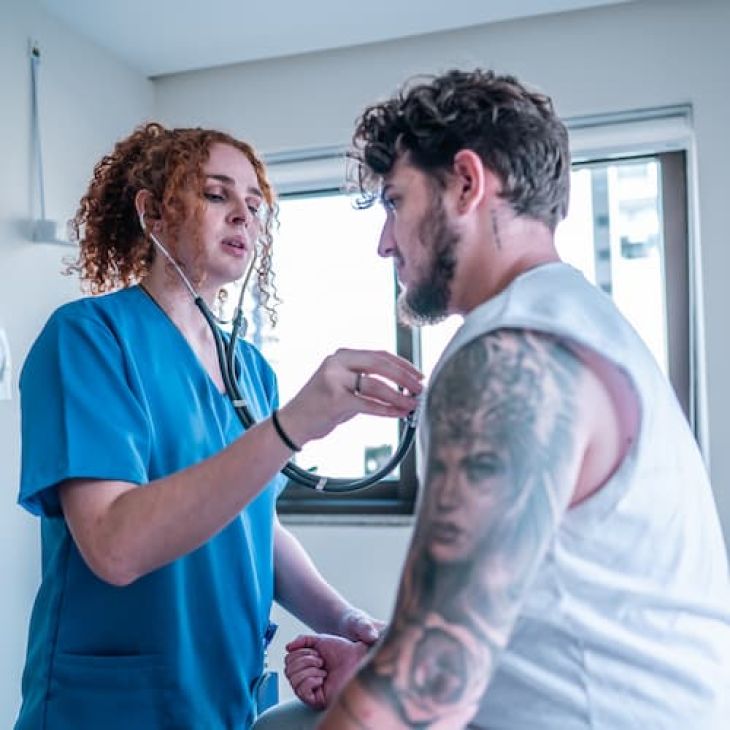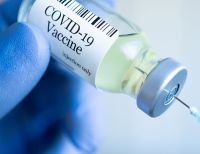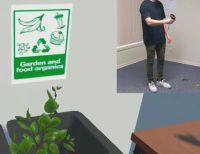20 June 2024
 A transgender male receiving a health check.
A transgender male receiving a health check.
The lack of culturally safe health screening for people who are transgender and gender diverse (TGD) is putting them at greater risk of cancer going undetected, but nurse practitioners could be trained to help close the gap.
That’s the view of Canadian and Australian researchers who are calling for improved access to prevention and screening services for the vulnerable TGD population.
A new paper published in Seminars in Oncology Nursing outlines the barriers that TGD individuals face when trying to access gender-affirming healthcare, particularly in low-income countries and where gender and sexual diversity is illegal.
While the proportion of TGT people in the overall community is small – conservatively estimated at between 0.3% and 4.5% of adults – they experience the same health issues and, in some cases, a greater risk of cancer due to a higher prevalence of alcohol and tobacco use and sexually transmitted diseases.
Study co-author, University of South Australia nurse practitioner Toni Slotnes-O’Brien, says TGD people deserve the same care as cis-gendered people, but nurses, doctors and allied health practitioners are currently lacking experience in providing inclusive and respectful care for this population.
“There’s a lack of knowledge about alternative tests – for example, self-collection for cervical screening – and the importance of recommending mammograms for transgender women from the age of 50 if they have developed breast tissue,” Mrs Slotnes-O’Brien says. “Trans men also require cervical screening even when on testosterone.”
Despite more awareness around gender diversity, TGD individuals continue to experience discrimination, threats and violence as a result of widespread prejudice, the researchers say, and this leads to poorer physical, emotional and mental health compared with cis-gendered individuals.
“One major problem I often see is personal opinions affecting a clinician’s decision to provide gender affirming care.”
Due to actual or fears of discrimination, many TGD individuals are reluctant to seek health checkups, including cancer screening, which can delay cancer diagnosis and treatment, leading to poorer outcomes and even death.
The World Professional Association of Transgender Health recommends several guidelines that practitioners should follow when considering the needs of TGD individuals on estrogen therapy. These include factoring in the length of time on estrogen, the dose, patient age and the age when gender-affirming hormones were started.
Independent studies have identified that breast cancer occurs at a younger average age in transmasculine individuals who undergo a mastectomy, highlighting the importance of regular screening.
The risks could be reduced if nurse practitioners were trained to work in collaboration with clinicians to improve healthcare access for this vulnerable group, researchers say.
“At UniSA’s City West Health Clinic, we conduct a transgender and gender diverse clinic and provide gender neutral toilets. Little things like that make a huge difference to a person who is transgender,” Mrs Slotnes-O’Brien says.
Notes for editors
“Cancer Screening and Prevention in the Transgender and Gender Diverse Population: Considerations and Strategies for Advanced Practice Nurses” is published is authored by Associate Professor Erin Ziegler from Toronto Metropolitan University and UniSA academics Toni Slotnes-O’Brien and Associate Professor Micah Peters.
…………………………………………………………………………………………………………………………
Media contact: Candy Gibson M: +61 434 605 142 E: [email protected]
Researcher: Toni Slotnes-O’Brien E: Toni.Slotnes-O’[email protected]
















